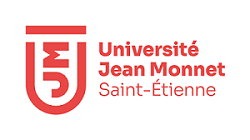Influence of Self-Trapped Holes on the Responses of Fluorine-Doped Multimode Optical Fibers Exposed to Low Fluences of Protons
Résumé
The radiation vulnerability of various classes of multimode silica‐based optical fibers is investigated for space applications operating from the ultraviolet up to near‐infrared spectral domains. For this, radiation‐induced attenuation (RIA) levels and kinetics in the 300 ÷ 1100 nm wavelength range are monitored during and after steady state 105 MeV proton exposure at room temperature (RT, equivalent dose of ∼250 Gy(Si$O_{2}$)). The responses of three types of “radiation hardened” optical fibers with either a pure‐silica core (PSC) or fluorine‐doped cores are compared to the one of a Telecom‐grade germanosilicate optical fiber. RIA growth during irradiation and decay after irradiation (recovery phase) reveal that the highly fluorine (2 wt.%)‐doped optical fiber, manufactured by axial vapor deposition process, presents higher RIA levels above 600 nm than other tested optical fibers. Indeed, if the high F‐doping level reduces the UV‐RIA related to SiE’, NBOHC or chlorine‐related centers this composition appears as associated with a strong RIA increase in the visible‐near‐IR through the more efficient generation of RT unstable strain‐assisted or inherent self‐trapped holes.

